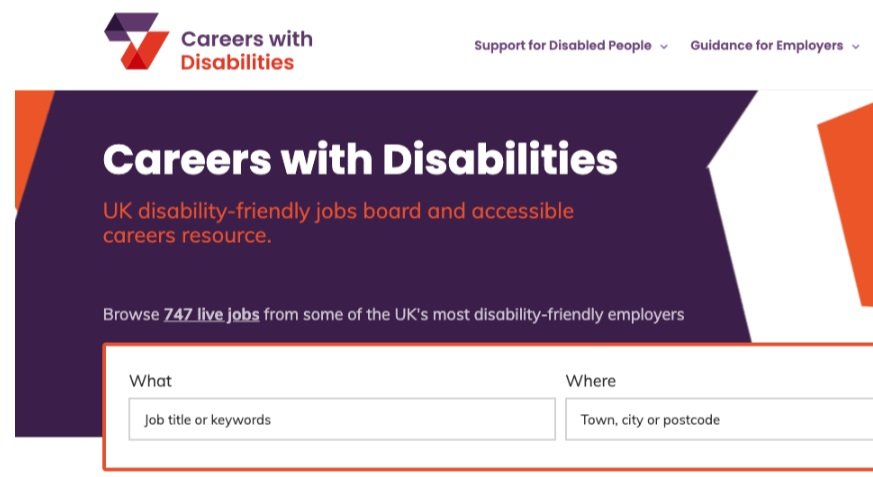Blog
Recent Posts

What Makes a Diagnosis Valid?
What assumptions do we make about the validity of an autism diagnosis? Does it matter whether the assessment took place through a state-funded service or whether it was paid for independently by the individual or their parent? Would we make the same judgements about any other privately-funded diagnosis as we do about autism and ADHD diagnoses?

Five Benefits of Using a Disability-Friendly Jobs Board
The business case for hiring more people with disabilities is compelling. Whether it's creativity, innovation or new approaches to problem-solving, it’s clear that diversifying a workforce will add new strengths to any organisation. If you’re feeling lost with how to get going, using a disability-friendly jobs board like Careers with Disabilities is a great place to start.

The Broken SEND System: A Crisis for the Next Generation
The SEND system is broken. Thousands of children and young people are being left without the support they need. Whilst the focus of special educational needs and disabilities support is often on improving educational outcomes, the consequences of this crisis reach far beyond a lack of qualifications…

Why the World Needs to Understand Neurodiversity
There was no mention in the posters that the teenager I knew was neurodivergent or that he had been struggling with his mental health. While he was missing, I panicked, thinking about what could go wrong if he was found by someone who didn’t understand how to communicate with him. I thought back to all the mental health training I’ve had over the years and realised that I couldn’t recall one occasion when a term like neurodivergent, autism, ADHD or non-speaking was even mentioned…

When Needs Collide: Managing Neurodiversity at Home
We’re living in a time when awareness of conditions like autism and ADHD is much more common, but understanding one individual’s needs doesn’t automatically give us the answers we’re looking for. How can we support them whilst simultaneously ensuring everyone else’s needs are met too? How do you support one child who craves novelty and excitement when the other needs quiet, structured routine? How do you give each child the time and attention they need without compromising your own health and wellbeing?

Parenting Neurodivergent Children: The Emotional Toll of Society’s Expectations
Finding out that their child is autistic leads many parents into a cycle of grief or ‘mourning’ as they come to the realisation that their child’s life will not turn out exactly how they expected. But why does we have such narrow expectations of how life should be? And how do society’s expectations affect our emotional responses to parenting neurodivergent children?

The Children Who Don’t Go To School
Reports describe the thousands of ‘ghost children’ who haven’t returned to education since the pandemic. Yet, behind each statistic is a unique child, in need of support. Many of these children are experiencing emotionally-based school avoidance (EBSA). What is it that prevents them from attending school and what can we do to help them?

But They Don’t LOOK Like They Have ADHD…
Children and young people with ADHD face many challenges in school. With a simplistic and outdated understanding of what ADHD is and the ways it impacts on learning, how are teachers supposed to effectively identify and implement the support these students need?

Does My Child Need A Label?
The decision of whether or not to pursue a diagnosis of a neurodevelopmental disorder for your child, such as autism or ADHD, can be an incredibly difficult one to make. If you’re struggling to make a decision, there are some key questions you can ask yourself to help weigh up the pros and cons of going ahead with an assessment. These include considering what support your child will be able to access with and without a diagnosis and how a diagnosis may affect them as they grow up.

Why is it SO hard to get an EHCP and how can I make sure my child’s application is successful?
Parents are now having to wait nearly a year for a hearing to appeal against an unfair decision made by their local authority not to issue Education, Health and Care Plans for a child who is clearly in need of one. But why is it seemingly impossible for parents to access the support their child desperately needs? And what can be done to ensure this doesn’t happen?
